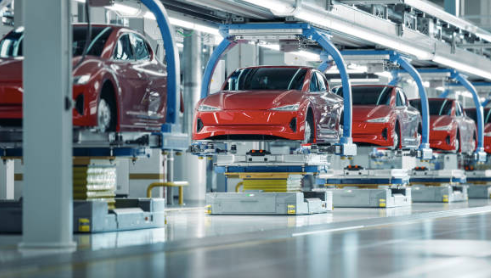The idea of connected cars has recently come into being. It brings a new challenge to the automotive industry, which is faced not only with the problems of the new world but is also developing in the world of today, which is increasingly dependent on digital technologies. A connected vehicle with other vehicles and intelligent transportation systems might open up new trails to safe mobility in human civilization. The concepts of automotive and digital technology are completely changing the ways of driving and opening up possibilities for building future cars not only as a means of transport but as intelligent, interconnected automobiles of the future.
What Are Connected Cars?
Connected Cars are the new generation of cars, designed to have internet features and interconnectivity with sensors to collect and transmit data with other cars, traffic signals, pedestrians, and the local surroundings. They make use of a host of technologies—GPS, wireless networks, sensors, and onboard computers—all in a bid to refine the effectiveness and safety that an automobile oozes while at the same time ensuring convenience in the journeying of the highways.
Enhanced Safety Features
It is often said that connected cars provide increased safety to vehicles that are on the road. Also, cooperating using the vehicle-to-vehicle (V2V) and vehicle-to-infrastructure (V2I) communications connected automobiles may express and receive the real time traits concerning traffic conditions, road risks and prospective accidents. For instance, connected cars can inform drivers about such things as relation car braking or an object appearing on the road and give a driver a chance to maneuver to avoid an accident. Also, it can provide help in an accident through the generation of an automatic call for assistance through the connected car’s built-in technology, which would also reduce response time and help to save lives.
Improved Traffic Management
Connected vehicles hold the promise of transforming traffic control through offering, up to the minute traffic details and enhancing traffic movement. By means of V2I communication connected vehicles have the ability to receive notifications regarding traffic jams, road shutdowns and alternate pathways empowering drivers to make informed choices about their travel routes and steer clear of areas. Furthermore, connected vehicles can also play a role in shaping cities by supplying data to city planners and transportation authorities for optimizing traffic signals, regulating traffic flow and enhancing overall transportation infrastructure.
Enhanced Driver Experience
Connected vehicles provide a variety of functions and services aimed at improving the driving experience and offering added convenience while on the road. These include voice activated features, personalized entertainment systems, advanced navigation tools and remote vehicle management options. With a host of conveniences, at their disposal drivers can enjoy a pleasant and efficient driving experience. For instance, individuals can utilize voice commands to manage aspects of their vehicle like adjusting climate settings, playing music or placing calls without needing to divert their attention from driving.
Challenges and Considerations
As much as connected cars offer several benefits, there are challenges and considerations to be encountered before they realize their full potential. Most important on this front are data privacy and cybersecurity concerns, considering that these cars will collect and transmit masses of sensitive information, which might fall prey to hacking events or unauthorized access. In addition, there will be issues with interoperability and standardization, with different manufacturers likely to adopt different connectivity technologies and protocols that may lead to complications in communicating information between vehicles and the infrastructure.
The Future of Connected Cars
However, the future of the connected car will be all about this: continuous innovation in digital technology and automotive engineering. With the continuously increasing pervasiveness of connectivity, connected vehicles with intelligence level and autonomy are promising to change transportation systems into safer and more traffic-efficient systems while making driving more pleasant. Continued investments in research and development, collaboration among industry stakeholders, and regulatory support will ensure connected cars continue to shape the mobility of the future towards new, intelligent, connected, sustainable transportation.



